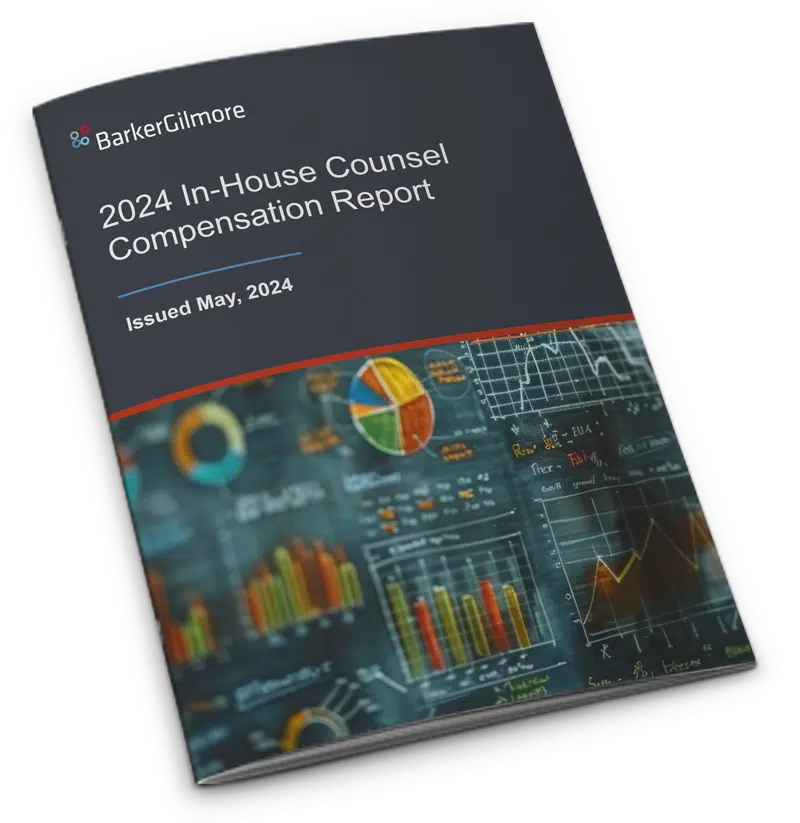Strategic Advisor and Coach Bill Solomon shares his views on how to inform and even persuade your management and board to involve you at the corporate strategic level, above and beyond the tactical and transactional. He specifically explains why this is an essential role, defines what it means to be a strategic GC and why GCs may be qualified as strategic leaders, and gives practical tips about how to become a strategic leader.
Now in the words of Bill Solomon:
“No matter what the size, age, structure, or organization of your company, the single most important factor in your involvement as a strategic advisor will be simply this: How are you as a legal professional perceived by the CEO, the Board of Directors, and the senior executive team?”
If others perceive you as a true legal expert, technician, and problem solver, you have taken an essential first step toward the expanded role of a strategic leader outside of the legal realm. However, it will be your challenge to climb up and out of that pigeonhole into another non-legal role or an expanded legal role.
Defining a strategic leader — Strategy is the establishment of a long-term plan of action, designed to achieve a particular goal or set of objectives, so a strategic leader needs to set goals and objectives for the organization.
Assessing their typical traits — Strategic leaders such as the CEO, CFO, COO, and CIO exhibit curiosity, see the big picture, understand the consequences of certain behaviors and activities, and weigh the implications of long- and short-term actions. They consider the interests of all stakeholders, not just the shareholders or investors, but customers, regulators, owners, the media, employees, the public, suppliers, and vendors. Strategic leaders are agile and move easily from strategy to tactics and implementation. Aware of their strengths and weaknesses, they are creative, open-minded, courageous, proactive, collaborative risk-takers, knowledgeable about business and finance, and analytical about issues and alternatives.
“What is a strategic General Counsel? This should be your current status and it is job number one. You will never become a strategic business leader if you are unwilling or incapable of being a strategic legal leader or counsel.”
This is the core requirement for your position. The objectives of the legal operations of the company must be effectively and consistently identified and managed. Strategizing and planning the legal environment and legal operations of your company involves resolving many issues at the:
- Macro level: ADR vs. litigation vs. settle; telecommuting; make or buy legal services; law firm rate increase policy; law firm convergence
- Micro level: unique case resolution; use of contract, secondment, part-time help; status of legal publications, allocation of administrative support
Serving as a strategic General Counsel allows management to see that you can step into a more expansive corporate role and is a prerequisite for expanding and enhancing your status as a non-legal strategic business advisor.
“The General Counsel as a strategic corporate leader — above and beyond the role of chief legal officer, providing business guidance, direction, ideas, and perspectives for the company that are separate and apart from legal advice — is not inconsistent with your role as a legal counselor. So why is the General Counsel particularly qualified for the strategic role?”
In addition to the typical traits of a strategic leader, a General Counsel usually possesses other highly valuable, perhaps even unique, attributes of a strategic leader, since they are:
- Trained problem identifiers and solvers
- Intelligent, objective, and effective communicators
- Calm, level-headed, and unflappable
- Experienced negotiators
- Respected with stature as an officer of the court
- Custodians of the corporate culture
- The ethical watchdog and conscience of the company
- Outside the fray of business performance and profit
There are plenty of other reasons why the GC is positioned for the strategic advisor role, such as their ready access to the CEO and Board, as well as the pervasive impact of the law and regulations on all aspects of the company, establishing immediate credibility. As a strategic leader you may enhance your career, gain financially, participate in the success of the company, and improve the morale of your law department. Alternatively, you will need to make a distinction between giving advice as a business leader and giving advice as a legal leader, experience a significant increase in work, and may risk potential failure and the resentment of colleagues.
“This is how to educate and persuade your CEO incrementally that you should have a seat at the table as a strategic business advisor. First, and I’ve said it before and I know I’m gilding the lily here, you need to be the absolute best General Counsel possible. Optimize and market the provision of legal services including the results, costs, responsiveness, and professionalism.”
There are actually two approaches to this process: incremental and direct. The right way to educate and persuade the CEO to get a seat at the table is to follow a stealth, indirect, and incremental process. These are the action steps that you can take to get there:
- Be the absolute best General Counsel possible
- Build strong networking ties with other executives
- Improve your skills and knowledge to make yourself more “strategic”
- Seek out strategic roles and opportunities
- Ask the CEO, and all department heads and the Board committee chairs, to sit in on various planning, reporting, and regular and/or special meetings so you can inform yourself and be more responsive and helpful providing legal services to the organization
- Send short, concise notes to essential decision makers with ideas, concerns or considerations that begin, “I understand that you are talking about possibly doing “X,” have you thought about….”
- Ask your CEO and other senior leaders for a “seat at the table,” emphasizing that being there will allow you to be more effective in your role as General Counsel
If you learn in advance about topics for strategic discussion, communicate with the meeting sponsor before the meeting to provide useful perspective so they do not feel ambushed or embarrassed and are able to preempt your perspective or invite you to raise it. This will give you credibility with the decision makers and win the allegiance of the sponsor by helping them look smart and thoughtful, leading to your greater involvement in future initiatives.
In time, move beyond the role of a “stealth” corporate strategic leader, and begin subtly asserting yourself with helpful and insightful comments, questions, and observations that are fundamentally positive and constructive, though possibly provocative. With a consistent pattern of your useful and insightful input over time, your involvement will be seen as integral to future strategic discussions, and before long you will be invited in or co-opted to become a strategic business partner.
If you choose to take a direct approach, resistance to your expanded role as a strategic corporate leader can occur for a variety of reasons, but you will not know unless you ask. So, ASK. Begin the request with your immediate supervisor, ordinarily the CEO, and enlist the support of the CEO to ensure your involvement in strategic matters with the Board and its committees. Reluctance and outright refusal require educating leadership about the special attributes you have as General Counsel. Ultimately, you may need to change their mind. Here’s how:
- Reduce reactance by diminishing the sense of loss of control
- Ease endowment by recognizing the status quo, but demonstrating improved quality of decisions and lower cost to the company with your involvement
- Shrink distance by showing your increased involvement within the zone of your existing involvement
- Alleviate uncertainty and suggest a trial period that is easily reversible if the new arrangement is unsuccessful
- Find corroborating evidence and provide information about the extent of General Counsel as strategic corporate leader in other, especially similarly situated, successful companies
And a final thought from Bill:
“Beyond on-going excellence as the chief legal officer, communicate to relevant colleagues and decision-makers your candid and reasoned perspective about company initiatives, as well as any of your own new ideas. Be patient, persistent, and persuasive and demonstrate in a low-key, non-threatening manner your unique perspective for the betterment of the company.”
Our team of professionals are happy to help accelerate the initiatives that you’re already pursuing or to supplement your current strategic thinking to help you realize your vision. Please reach out if you or your organization may benefit from our recruiting, coaching, or advising services.
Connect with a legal recruiting advisor
* indicates required fields






